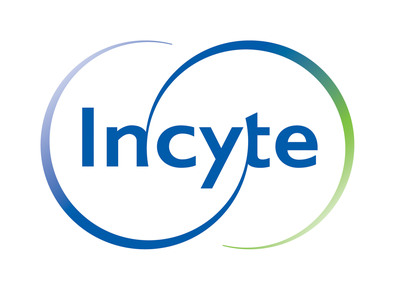INDIANAPOLIS, June 9, 2016 /PRNewswire/ -- Eli Lilly and Company (NYSE: LLY) and Incyte Corporation (NASDAQ: INCY) today announced that data from a pivotal long-term extension study, RA-BEYOND, was presented at the Annual European Congress of Rheumatology (EULAR 2016) in London. The findings demonstrate that baricitinib was superior to placebo at inhibiting progressive radiographic joint damage in patients with rheumatoid arthritis (RA).
"Together with the improvement of clinical and quality of life symptoms, which are so important for rheumatoid arthritis patients, a key goal of treatment is to restrict the structural damage rheumatoid arthritis causes to joints, a hallmark of the disease," said Désirée van der Heijde, M.D., Ph.D., professor of rheumatology, Leiden University Medical Center, Leiden, The Netherlands. "These findings have shown us that, for people with rheumatoid arthritis, baricitinib may, if approved, offer an oral option which could help them restrict joint damage over an extended period of time."
In RA-BEYOND, patients who completed the pivotal 24-week RA-BUILD study continued to receive baricitinib at the same dose of either 2 mg or 4 mg, received at the end of RA-BUILD. Patients receiving placebo at the end of RA-BUILD were switched to baricitinib 4 mg in RA-BEYOND. Following 24 weeks of treatment, baricitinib was superior to placebo in preventing progressive radiographic structural joint damage. These treatment benefits were maintained through 48 weeks of therapy. The most robust benefits across measures of progressive joint damage were observed for the 4 mg baricitinib dose.
"We are pleased to present these data from the RA-BEYOND study, which reinforce our belief in baricitinib as a next generation potential therapy for rheumatoid arthritis," said James McGill, M.D., distinguished medical fellow and global brand development leader, Lilly Bio-Medicines. "If approved, baricitinib could offer a valuable oral option that may be appropriate for RA patients who are not currently achieving their treatment goals, even with their conventional DMARDs."
"Findings from this long-term extension study suggest that, if approved, baricitinib has the potential to bring hope to patients with rheumatoid arthritis who deserve better treatment options," said Steven Stein, M.D., chief medical officer, Incyte Corporation. "We are encouraged by these data, which show baricitinib has a sustained effect in preventing joint damage for those suffering with this debilitating disease."
At the time of the present evaluation, the ongoing RA-BEYOND study had enrolled more than 2,600 patients who completed previous baricitinib trials, including RA-BUILD. The RA-BUILD study enrolled 684 patients with RA who previously had an inadequate response to, or were intolerant of, at least one conventional DMARD and had not received a biologic DMARD. Patients completing RA-BUILD and entering RA-BEYOND continued to receive the baricitinib dose received at the end of RA-BUILD. Patients receiving placebo at the end of RA-BUILD were switched to 4 mg baricitinib in RA-BEYOND.
Structural joint damage was evaluated using van der Heijde modified Sharp scores, which quantify bone erosion and joint space narrowing in X-rays of patients' hands and feet. To account for treatment changes or missing scores, two different statistical methods were used, linear extrapolation (LE) and last observation carried forward (LOCF). Using LE, both baricitinib dose groups showed statistically significantly reduced rates of progression at weeks 24 and 48 compared to placebo. Using LOCF, only the 4 mg dose showed statistically significant reduction in progression of joint damage at weeks 24 and 48.
In RA-BUILD, the incidence of treatment-emergent adverse events and serious adverse events was similar between baricitinib and placebo. Discontinuation or interruption in treatment due to adverse events were also similar between baricitinib and placebo in RA-BUILD.
About Baricitinib
Baricitinib is a once-daily oral highly selective JAK1 and JAK2 inhibitor currently in late-stage clinical studies for inflammatory and autoimmune diseases. There are four known JAK enzymes: JAK1, JAK2, JAK3 and TYK2. JAK-dependent cytokines have been implicated in the pathogenesis of a number of inflammatory and autoimmune diseases, suggesting that JAK inhibitors may be useful for the treatment of a broad range of inflammatory conditions. Baricitinib demonstrates approximately 100-fold greater potency of inhibition against JAK1 and JAK2 than JAK3 in kinase assays.
In December 2009, Lilly and Incyte announced an exclusive worldwide license and collaboration agreement for the development and commercialization of baricitinib and certain follow-on compounds for patients with inflammatory and autoimmune diseases. Baricitinib was submitted for regulatory review seeking marketing approval for the treatment of rheumatoid arthritis in the U.S., European Union and Japan in Q1 2016, and is being studied in phase 2 trials for atopic dermatitis and systemic lupus erythematosus.
About Rheumatoid Arthritis
Rheumatoid arthritis is an autoimmune disease characterized by inflammation and progressive destruction of joints.[i,ii] More than 23 million people worldwide suffer from RA.[iii] Approximately three times as many women as men have the disease. Current treatment of RA includes the use of non-steroidal anti-inflammatory drugs, oral conventional disease-modifying antirheumatic drugs (cDMARDs), such as methotrexate the current standard of care and injectable, biological disease-modifying antirheumatic drugs (bDMARDs) that target selected mediators implicated in the pathogenesis of RA.[iv] Despite current treatment options, many patients do not reach their therapeutic goals or sustained remission.[v,vi] There remains an important need to provide additional treatments to improve overall patient care.
About Baricitinib Phase 3 Trials
Lilly and Incyte conducted four pivotal phase 3 clinical trials of baricitinib in patients with moderately-to-severely active rheumatoid arthritis to support regulatory submission in most countries. An additional phase 3 study was initiated to support clinical development in China. The clinical trial program includes a wide range of patients including those who are methotrexate-naïve, inadequate responders to methotrexate, inadequate responders to conventional disease-modifying anti-rheumatic drugs, or inadequate responders to TNF inhibitors. Patients completing any of the five phase 3 studies can enroll in a long-term extension study. For additional information on this clinical trial program, please visit www.clinicaltrials.gov.
About Incyte
Incyte Corporation is a Wilmington, Delaware-based biopharmaceutical company focused on the discovery, development and commercialization of proprietary therapeutics. For additional information on Incyte, please visit the Company's web site at www.incyte.com.
Follow @Incyte on Twitter at https://twitter.com/Incyte.
About Eli Lilly and Company
Lilly is a global healthcare leader that unites caring with discovery to make life better for people around the world. We were founded more than a century ago by a man committed to creating high-quality medicines that meet real needs, and today we remain true to that mission in all our work. Across the globe, Lilly employees work to discover and bring life-changing medicines to those who need them, improve the understanding and management of disease, and give back to communities through philanthropy and volunteerism. To learn more about Lilly, please visit us at www.lilly.com and newsroom.lilly.com/social-channels.
P-LLY
This press release contains forward-looking statements (as that term is defined in the Private Securities Litigation Reform Act of 1995) about baricitinib as a potential treatment for rheumatoid arthritis, and the RA-BUILD and RA-BEYOND trials, and reflects Lilly and Incyte's current belief. However, as with any pharmaceutical product, there are substantial risks and uncertainties in the process of development and commercialization. Among other things, there can be no guarantee that future study results will be consistent with study findings to-date, or that baricitinib will receive regulatory approvals or prove to be commercially successful. For further discussion of these and other risks and uncertainties, see Lilly's and Incyte's most recent Form 10-K and 10-Q filings with the United States Securities and Exchange Commission. Except as required by law, Lilly and Incyte undertake no duty to update forward-looking statements to reflect events after the date of this release.
i American College of Rheumatology, Rheumatoid Arthritis, http://www.rheumatology.org/practice/clinical/patients/diseases_and_conditions/ra.asp (Accessed: May 16, 2016)
ii Hand Clinics, Advances in the Medical Treatment of Rheumatoid Arthritis, http://www.ncbi.nlm.nih.gov/pmc/articles/PMC3135413/pdf/nihms305780.pdf (Accessed: May 16, 2016)
iii WHO Global Burden of Disease Report, (table 7, page 32) 2004, http://www.who.int/healthinfo/global_burden_disease/GBD_report_2004update_full.pdf (Accessed May 16, 2016)
iv Arthritis Foundation, Medications for Rheumatoid Arthritis, http://www.arthritistoday.org/about-arthritis/types-of-arthritis/rheumatoid-arthritis/treatment-plan/medication-overview/ra-medications.php (Accessed: May 16, 2016)
v Rheumatoid arthritis, Lancet, https://www.ncbi.nlm.nih.gov/pubmed/27156434 (Accessed: May 19, 2016)
vi Sustained rheumatoid arthritis remission is uncommon in clinical practice, Arthritis Research & Therapy, http://www.ncbi.nlm.nih.gov/pmc/articles/PMC3446437/ (Accessed: May 19, 2016)
Refer to: | Nan Frient; frient_nan@lilly.com; +1-317-471-7040 (Lilly media) |
Phil Johnson; johnson_philip_l@lilly.com; +1-317-655-6874 (Lilly investors) | |
Catalina Loveman; cloveman@incyte.com; +1-302-498-6171 (Incyte media) | |
Michael Booth, DPhil; mbooth@incyte.com; +1-302-498-5914 (Incyte investors) |


Logo - http://photos.prnewswire.com/prnh/20031219/LLYLOGO
Logo - http://photos.prnewswire.com/prnh/20120608/DE21226LOGO
To view the original version on PR Newswire, visit:http://www.prnewswire.com/news-releases/baricitinib-significantly-reduces-joint-damage-progression-in-rheumatoid-arthritis-in-patients-who-do-not-respond-to-conventional-dmards-300281377.html
SOURCE Eli Lilly and Company





